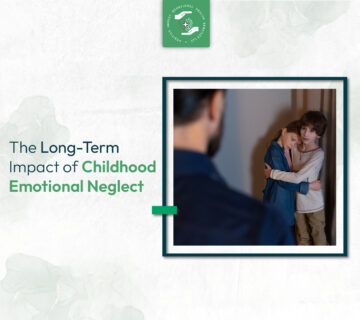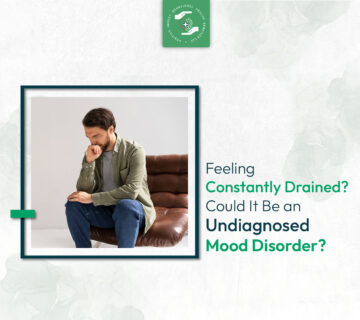Mental health is influenced by a myriad of factors, many of which extend beyond an individual’s control. These factors, known as social determinants of health, play a significant role in shaping one’s mental well-being. In this blog, we’ll explore these determinants and how they impact mental health, emphasizing the importance of recognizing and addressing them, especially within a mental health clinic context.
The Role of Economic Stability
Economic stability, including factors such as employment, income, expenses, and financial security, directly influences mental health. Unemployment or financial uncertainty can lead to increased stress, anxiety, and depression. When individuals lack a steady income or face financial hardships, their ability to access basic needs like food, housing, and healthcare is compromised, exacerbating their mental health issues. On the flip side, economic stability often brings a sense of security and well-being, making it easier for individuals to focus on personal growth, education, and maintaining healthy relationships. Thus, addressing economic disparities is crucial in fostering better mental health outcomes.
Economic challenges are often structural, rooted in broader socioeconomic policies and practices. For example, individuals from marginalized communities are disproportionately affected by unemployment rates and job insecurities, further widening the gap in mental health disparities. Studies indicate that addressing these structural issues can significantly lower the prevalence of mental health disorders among economically disadvantaged groups. Policies that promote job security, fair wages, and financial literacy can serve as preventive measures against the mental health strains caused by economic instability, creating a healthier, more resilient society.
Moreover, economic instability can lead to chronic stress, a condition known to have severe implications for mental health. Chronic financial stress can trigger a cycle of poor health choices, such as substance abuse or neglecting medical care. It can also lead to strained personal relationships and social isolation—factors that further deteriorate mental health. Recognizing these triggers and providing support through financial counseling and community resources can help break this cycle. For instance, initiatives aimed at reducing debt and increasing financial security have shown promise in reducing stress and improving overall well-being.
Access to Quality Education
Education is a powerful determinant of mental health. Access to quality education from early childhood through adulthood not only provides essential skills but also promotes mental well-being by fostering a sense of achievement and belonging. A solid educational foundation can enhance self-esteem and self-efficacy, key factors in maintaining good mental health. Conversely, a lack of access to education can lead to feelings of inadequacy and hopelessness, contributing to anxiety and depression. Educational institutions serve as pivotal environments where children and adults learn to navigate social dynamics, manage stress, and build supportive networks.
Educational disparities often mirror broader social inequalities. Individuals from low-income families or marginalized communities may face significant barriers to accessing quality education, including underfunded schools and limited extracurricular opportunities. These barriers can have long-term effects on mental health, perpetuating cycles of disadvantage. Investing in educational equality, therefore, is not only a matter of improving academic outcomes but also a critical component of mental health promotion. Programs that focus on early intervention, mentorship, and inclusive education can play a transformative role in leveling the playing field and enhancing mental well-being across communities.
Additionally, education on mental health topics within the school curriculum can further help mitigate issues. When students are educated about mental health, they are more likely to recognize symptoms in themselves or others and seek help early. This proactive approach can significantly reduce the stigma associated with mental health issues and encourage a supportive school environment. For instance, incorporating mindfulness and stress management techniques as part of the school program can equip students with invaluable coping skills, promoting resilience and a more positive outlook on life.
Social and Community Networks
Strong social connections and a supportive community can significantly impact mental health. Conversely, social isolation or lack of community support can exacerbate mental health issues, highlighting the importance of building strong social networks. Human beings are inherently social creatures; our interactions and relationships with others provide emotional support, practical help, and a sense of belonging. Communities that foster close-knit relationships and social interaction tend to have lower rates of mental health issues, as these communities act as a buffer against stress and loneliness.
Social capital—the networks, norms, and social trust that facilitate coordination and cooperation for mutual benefit—is a crucial component. Communities with high social capital often report better mental health outcomes. These communities provide a safety net, where individuals can rely on each other for support during challenging times. Engaging in community activities, volunteering, and participating in local organizations can significantly enhance one’s sense of belonging and purpose, crucial factors in maintaining mental health. However, not all communities have equal access to such enriching activities, which is why targeted efforts to build social capital in disadvantaged areas are essential.
Moreover, the role of technology in shaping social networks cannot be ignored. While social media can provide avenues for connection, it can also lead to superficial relationships and increased feelings of loneliness and anxiety. Therefore, it’s important to strike a balance between online interactions and real-world connections. Mental health initiatives that encourage face-to-face social interactions and community engagement can counteract the potential negative effects of digital use. Educational campaigns that promote awareness about the healthy use of social media can also play a role in minimizing its adverse impacts on mental health.
Healthcare Access and Quality
Access to quality healthcare, including mental health services, is essential for maintaining mental well-being. Barriers such as cost, location, and availability of services can hinder individuals from receiving the care they need, leading to worsening mental health conditions. When people cannot access timely and appropriate care, their symptoms may escalate, resulting in more severe and harder-to-treat conditions. Mental health clinics play a pivotal role here, providing specialized care tailored to individual needs. At Positive Impact Behavioral Health, for instance, the focus is on creating personalized treatment plans that address both the psychological and social needs of patients.
Telehealth has emerged as a game-changer in improving access to mental health services. With the help of technology, mental health clinics can now offer consultations and therapy sessions online, making it easier for individuals in remote areas to receive care. Telehealth also reduces the stigma associated with visiting a mental health clinic by offering a more private and convenient option. This accessibility is particularly beneficial for those who experience issues like agoraphobia or social anxiety, making it possible for them to seek help without leaving their comfort zones. Ensuring the availability of affordable telehealth services can thus be a vital component in comprehensive mental health care.
Quality of care is just as important as access. Healthcare providers must be trained to deliver culturally sensitive and patient-centered care. A one-size-fits-all approach does not work, especially in mental health care, where individual experiences and backgrounds significantly influence treatment outcomes. Providers like Dr. Martins Akhibi at Positive Impact Behavioral Health emphasize the importance of integrating scientific evidence with individual mindfulness. By tailoring treatment plans to each patient, healthcare providers can ensure more effective and lasting positive outcomes. Continuous education and training for healthcare providers on the latest mental health research and best practices are crucial for maintaining the quality of care.
Neighborhood and Built Environment
The environment in which one lives, including housing quality, neighborhood safety, and access to green spaces, plays a crucial role in mental health. Poor living conditions and unsafe neighborhoods can lead to chronic stress and negatively impact mental well-being. For instance, living in a high-crime area fosters a constant sense of fear and anxiety, affecting residents’ mental health. In contrast, access to clean, safe, and aesthetically pleasing environments can foster a sense of tranquility and well-being. Policies aimed at improving neighborhood conditions, such as urban development projects that include parks and recreational areas, can significantly enhance community mental health.
Environmental stressors, such as pollution and noise, also contribute to mental health issues. Studies have shown that exposure to high levels of air pollution can increase the risks of depression and anxiety. Similarly, constant exposure to noise pollution can lead to stress-related conditions and disrupt sleep patterns, further exacerbating mental health problems. Addressing these issues requires coordinated efforts from policymakers, community leaders, and mental health professionals to create environments that promote mental well-being. Simple changes like reducing traffic in residential areas or increasing green spaces can have a profound impact on mental health.
The Impact of Food Security
Having consistent access to nutritious food is vital for mental health. Food insecurity can cause significant stress and anxiety, while a balanced diet supports brain function and overall mental well-being. Poor nutrition can affect cognitive functions and contribute to mood disorders. For example, deficiencies in certain nutrients like omega-3 fatty acids, B vitamins, and magnesium have been linked to depression and anxiety. Ensuring that individuals have access to healthy food options can, therefore, serve as a preventive measure against mental health issues. Policies that address food deserts and promote community gardens can help improve food security and mental health outcomes.
Food insecurity is often a symptom of broader socioeconomic issues. Low-income families may struggle to afford nutritious food, leading to a reliance on cheaper, unhealthy options. This not only affects physical health but also exacerbates stress and mental health problems. Community programs that provide access to fresh produce and nutritional education can make a significant difference. Schools can play a vital role by offering healthy meals and educating students about the importance of nutrition. Integrating food security measures into social policies can contribute to better mental health and overall well-being.
The Influence of Early Childhood Experiences
Early childhood experiences, such as trauma, neglect, or abuse, can have lasting effects on mental health. Positive early experiences and a supportive environment are crucial for healthy mental development. Adverse childhood experiences (ACEs) can disrupt brain development and lead to long-term mental health issues, including anxiety, depression, and PTSD. It is essential to address ACEs early through therapeutic interventions and supportive environments. Mental health clinics, like Positive Impact Behavioral Health, offer specialized programs to help individuals cope with the aftermath of traumatic experiences. Early intervention can mitigate the negative impacts of ACEs and promote resilience.
Supportive environments during early childhood can serve as protective factors against mental health issues. Engaging children in positive activities, providing emotional support, and ensuring stable attachment relationships can foster a robust psychological foundation. Parenting programs that focus on building healthy communication and stress management skills can also be beneficial. Ensuring that children grow up in nurturing and stable environments can help prevent the long-term consequences of early trauma and adversity. Schools and community centers can play a pivotal role by offering programs that support children’s mental and emotional development.






No comment